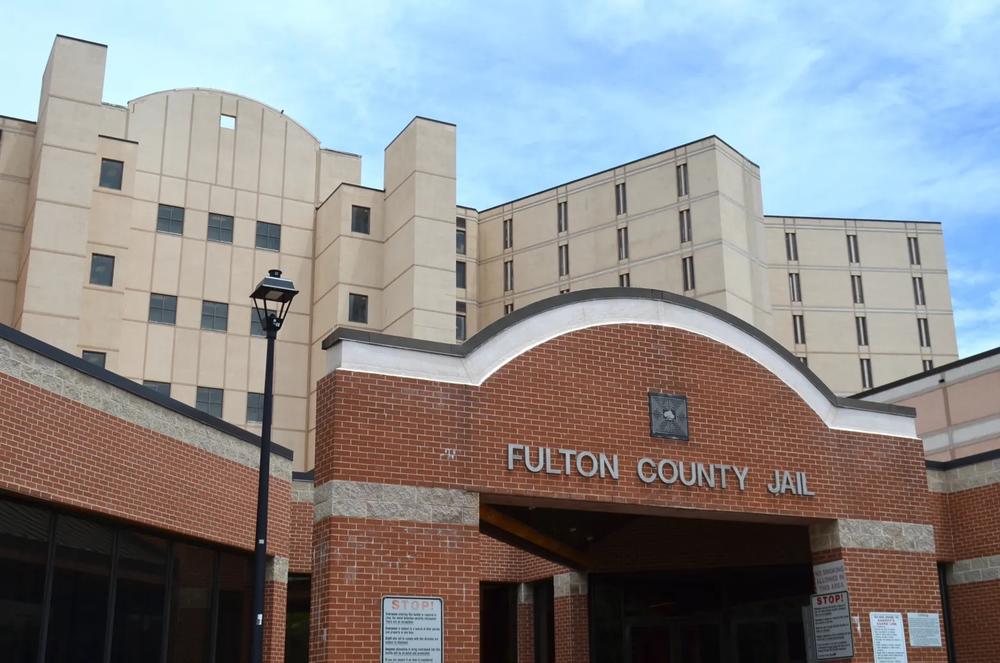
Caption
Overcrowding at the Fulton County Jail could be eased by setting affordable bonds and using pre-arrest diversion programs, the ACLU of Georgia said.
Credit: File

Overcrowding at the Fulton County Jail could be eased by setting affordable bonds and using pre-arrest diversion programs, the ACLU of Georgia said.
The ACLU of Georgia and the Southern Center for Human Rights shared suggestions to deal with overcrowding at the embattled Fulton County Jail and police violence in Atlanta in a joint press conference on Thursday.
The press conference came on the heels of officials learning Tuesday that Fulton’s chief magistrate plans to stop handling Superior Court felony case preliminary hearings, a move that would slow criminal case progress and increase jail overcrowding.
The ACLU has analyzed the overcrowding at the jail, shown in its report, “Breaking the Cycle: Exploring Alternatives to a New Jail,” which was released on Wednesday. The Southern Center for Human Rights released its report, “Pain & Power: Confronting Police Violence in Atlanta,” earlier this year.
Fulton County was in the same situation with its jail in the 1980s with the Jefferson Street Jail, Fallon McClure, deputy policy and advocacy director for the ACLU, said. A look at news articles from that time showed almost the same headlines as today, saying the jail is unsafe and people are sleeping on the floor.
“If you’re just going to spend $2 billion, or whatever they’re saying it is now to build a new jail, and if you don’t fix the problems, it’s going to be overcrowded,” she said.
She said the ACLU considers that the bottleneck is in the magistrate court because determining a suspect’s ability to make bond does not happen early enough in the process. If the defendants were given bonds that they could afford initially, the process would improve.
But Chief Magistrate Cassandra Kirk announced she would eliminate or significantly reduce the support her office has provided Superior Court in felony cases for preliminary hearings and operating the “Non-Complex Division,” Fulton Commissioner Dana Barrett announced in a press release. That division deals with low-level felonies which are approximately 60 percent of all felony cases.
The release said that Kirk told Superior Court Chief Judge Ural Glanville about her decision to cut the support it has provided for more than a decade.
Glanville said in a memo to the Fulton County Board of Commissioners that if Kirk moves forward with her plan, Superior Court judges would each see their dockets grow by more than 90 cases, the equivalent of a 70 percent increase for many of them. He said that criminal cases would move much more slowly and the jail population will grow, a reversal of the current downward trend.
Barrett called for Kirk to step down from her position, calling it a stunt to force the commission to increase her 2024 budget and in support of her campaign to move the court clerk function under her control.
“Judge Kirk has not worked collaboratively or in good faith with the Board of Commissioners and appears to have caused a significant backlog of cases in an effort to undermine the Clerk of Superior & Magistrate Court. This is part of a larger pattern of behavior that has shown Judge Kirk is incapable of putting the citizens of Fulton County above her desire for control,” Barrett said in her release.
Despite progress that had been found this year, 362 people with low bonds had been in custody in the jail for more than three months, McClure said. They found 503 cases of detainees who had not been indicted within 90 days of their incarceration.
One of the biggest problems is that the average length of stay is 291 days, which is almost 10 times higher than the national average of 30 days.
Another solution the ACLU suggested was to expand the pre-arrest diversion program to all law enforcement agencies in Fulton County. Only MARTA Police, the Atlanta Police Department and Georgia Tech can divert individuals to an alternative diversion program.
If all 15 cities in Fulton could divert to the alternative diversion program and if bonds were set in consideration of an individual’s ability to pay it could clear up the bottleneck and reduce the overcrowding in the jail.
This story comes to GPB through a reporting partnership with Rough Draft Atlanta.